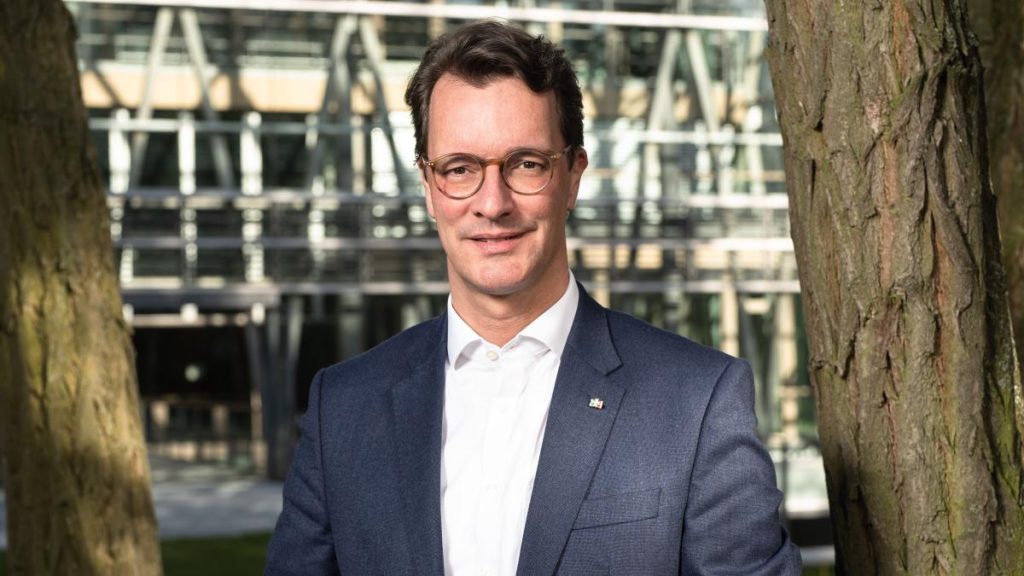North Rhine-Westphalia’s Minister President Hendrik Wüst, 48, is often seen as a competitor of CDU party leader Friedrich Merz and a potential candidate for chancellor. Ahead of the CDU party conference in Berlin this week, Wüst is clarifying his position. In an interview, Wüst describes the functioning of the black-green coalition in North Rhine-Westphalia as cooperative and focused on problem-solving, highlighting their differences from the coalition in Berlin. He emphasizes the need for cooperation between the CDU and the Greens, acknowledging that both parties have room for improvement.
Wüst discusses the possibility of different coalition options after the upcoming federal election, highlighting the importance of respecting the voters’ choices. He mentions that a Grand Coalition may not be the first choice for the CDU after the previous experience, and stresses the need for the Union to strengthen its position to have multiple coalition options. Wüst also addresses the CDU’s current polling numbers, indicating that there is room for improvement and expressing confidence in the leadership of Friedrich Merz.
The article also delves into the political landscape in Europe, where center-right coalitions are becoming more prevalent. Wüst emphasizes the importance of sticking to a centrist approach and avoiding populism in order to maintain stability and success. He reiterates the CDU’s commitment to being a big tent party in Europe, promoting conservative values while staying true to the principles of the center. The discussion touches on the party’s evolving stance on issues such as work, climate, and culture in their new party program.
Wüst discusses the challenges of managing migration in North Rhine-Westphalia, highlighting the strain it puts on the state’s resources and integration efforts. He calls for a change in Germany’s migration policy to address the growing complexity of the issue. Wüst advocates for ending irregular migration and stresses the need for agreements with origin countries to facilitate repatriation and regulate migration flows. He warns against delaying solutions to the migration crisis, citing the need for action to prevent disillusionment and extremism.
The article concludes with a discussion on the internal dynamics of the CDU, focusing on the upcoming party conference and the selection of the party leader. Wüst expresses confidence in Friedrich Merz’s leadership and loyalty within the party. He emphasizes the importance of unity between the CDU and CSU in selecting a candidate for chancellor. The conversation also touches on the need for a robust debate within the party to address key challenges and develop a new party program.















